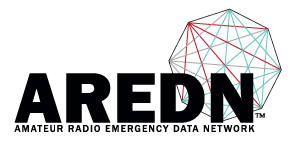You are here
AREDN Development Plans 2025
AREDN Development Plans
A heads up on AREDN software development plans
AREDN®, as we’ve come to know it, is 11 years old. In that time it has come a long way, supporting a wide variety of devices, a host of radio bands, and has been deployed across the world. The UI has evolved, tunnels have been added, bandwidth and throughput have increased, and more features and services can be supported. The one constant in all this has been how AREDN® manages the network, using a protocol called Optimized Link State Routing - OLSR. Unfortunately as networks have grown, this protocol has buckled, and sometimes broken, under the strain, as OLSR was never designed for the size or variety of the networks we have. This year we added a new modern network protocol - Babel (see the How-To in the online documentation for more information). The goal has been to replace OLSR after a period of testing and migration, and we imagined it might take years to successfully transition from one protocol to the other. Instead, we have been blown away by how our community has embraced and requested this change. As of this writing, almost 80% of nodes worldwide are running firmware which uses the Babel protocol.
With this in mind, we have decided to move more quickly with our Babel transition. 2025 will be the last year we release AREDN® code which contains OLSR; 2026 will be the year we only speak Babel.
The Plan
In 2025 we expect one or more additional AREDN® production releases. These will be maintenance releases containing only critical bug fixes. All new development work will happen in the Babel nightly builds. Then in 2026, the Babel nightly build will become the main nightly build, with the first production release being 4.26.1.0. To mark this change, we will bump our major release number to 4, indicating this major protocol change.
Effects of this Plan
Advantages for Babel-only networks:
-
Reduced firmware size / memory footprint / cpu utilization on individual nodes.
-
Reduced network bandwidth utilized for maintaining routing information. Babel only transmits routing changes when they are detected, as compared to OLSR which broadcasts routing tables continuously.
-
Resistance to forming routing loops.
Impacts to non-Babel networks:
-
Nodes on non-Babel networks will continue to operate normally in communicating with each other. These “legacy” nodes will not stop operating, but they can continue to communicate with their peers on their existing firmware releases.
-
non-Babel nodes will not be able to communicate with Babel-only nodes due to their inability to establish routes to those nodes.
Impact when navigating the Supernode network:
-
Once supernodes are migrated to Babel-only firmware, they may not be able to route queries to non-Babel nodes.
Other Impacts
-
Nodes with 32 MB of RAM can’t run the Babel-only code (predominantly the ‘XM’ hardware); make plans on retiring or replacing them. At this point only about 4% of the nodes on the network are in this category. As adjacent nodes convert to Babel-only, these legacy nodes will be unable to connect to the network.
-
And, as always, people will be free to download and install any legacy version of firmware they desire from the AREDN® download site.
Theme by Danetsoft and Danang Probo Sayekti inspired by Maksimer
